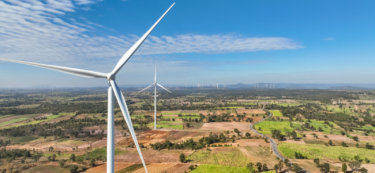
Blog
Expert Advice
7 min read
13 Nov 2024


Blog
Expert Advice
7 min read
13 Nov 2024

In 2024, the SAP Procurement Industry Leaders Think Tank community has been diligently analyzing strategies for expediting supply chain decarbonization. During a recent technology briefing, SAP showcased the integration of its Sustainability solutions, including S/4HANA Green Ledger, SAP Ariba, and SAP Taulia. These integrated tools offer companies a comprehensive approach to address Greenhouse Gas Protocol Scope 1, 2, and 3 emissions efficiently and at scale. By leveraging this suite of solutions, SAP provides organizations with a robust framework for sustainability, enabling significant reductions in the carbon footprint across the entire value chain. This article outlines key insights from recent forums on sustainable procurement and provides actionable recommendations for achieving measurable outcomes.
Decarbonization, defined as the process of reducing CO2 emissions through the transition from fossil fuels, is a critical component in addressing climate change. Organizations face considerable challenges in navigating the multitude of standards and frameworks, particularly when addressing emissions within their supply chains.
In this intricate landscape, technology solutions play a pivotal role. They assist companies in enhancing visibility of their carbon footprints, integrating sustainability into procurement processes, and creating incentives for suppliers to adopt more environmentally responsible practices.
A key milestone in the global decarbonization effort was the 2015 Paris Agreement, which aims to limit the increase in global average temperature “to well below 2°C above pre-industrial levels”, while pursuing efforts to “limit the temperature increase to 1.5°C above pre-industrial levels.” But in practice, there are over 600 sustainability reporting standards, frameworks and initiatives around the world, with different countries approaching decarbonization in myriad ways:
While these initiatives and frameworks are critical to accelerating decarbonization, reducing emissions, and limiting global warming, the fragmented, evolving landscape and the lack of a mature and universal emissions accounting standard or approach present significant challenges for companies. At the same time, businesses are under increasing pressure from customers, insurers, and potential employees to decarbonize faster.
In November 2023, research carried out by Accenture found that only 18% of companies were on track to reach net zero emissions in their operations by 2050, with 38% saying they could not make further investments in decarbonization in the current economic environment.
Procurement teams have a particularly important role in supporting companies’ sustainability goals. The emissions that occur within a company’s supply chain – known as Scope 3 emissions – can represent as much as 90% of the company’s total emissions. As such, procurement is the biggest lever companies can use to control greenhouse gas emissions.
This can be challenging, as the relevant activities are not under the company’s direct control. However, companies have much to gain by adopting sustainable procurement practices, such as collecting carbon footprint data from suppliers and integrating ESG assessments into the supplier selection process.
For companies looking to integrate sustainability into their procurement operations, a best-of-breed technology approach can simplify data collection and provide specialized insights into supplier performance. This approach often involves using standalone or point solutions that focus specifically on sustainability metrics and reporting.
However, best-of-breed solutions may present challenges, particularly when integrating existing systems. Adopting new, separate systems comes with set-up costs, a learning curve, and the risk that suppliers may be slow to commit to these new processes.
In contrast, an ERP-centric or best-of-suite approach can offer a more cohesive and efficient solution. By leveraging the wealth of data embedded within a company’s ERP system, companies can maximize their existing infrastructure and gain deeper insights without requiring extensive new systems.
With an ERP-centric solution, companies can track energy consumption associated with specific orders, access supplier carbon footprint data, and encourage more sustainable supplier behavior through integrated supplier financing programs.
Using an ERP-centric approach, SAP and Taulia can support companies’ sustainability initiatives with a number of products that enable information to flow upstream from suppliers into the company’s procurement and finance systems:
Each solution listed above offers individual benefits to companies looking to address sustainability. But by using these solutions as a natively integrated suite, companies can optimize the entire procurement process, drive a deeper relationship between their procurement and finance teams, and boost relationships with ESG-focused suppliers.
As decarbonization continues to be a high priority worldwide, the burden companies face will only continue to grow. Unlike other technology-led solutions, SAP enables companies to drive decarbonization and tap into existing business information in an integrated way. By embedding these practices today, companies will be better placed to build more sustainable supply chains, improve their relationships with suppliers, and be ready for future regulatory developments.


Expert Advice
These six supply chain technologies are changing the way supply chains work, giving companies new opportunities to achieve efficiency and…


Expert Advice
Getting the best performance from your suppliers, while also ensuring you’re contributing towards a stable long-term relationship, can pay off…


Expert Advice
Supply chain initiatives can help businesses mitigate threatening ESG risks and improve their ESG performance in the meantime. Here’s how.